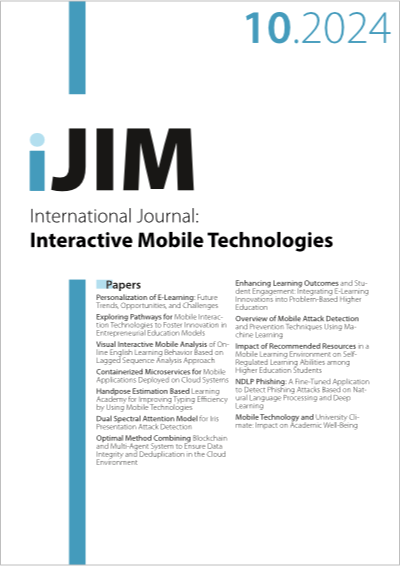Visual Interactive Mobile Analysis of Online English Learning Behavior Based on Lagged Sequence Analysis Approach
DOI:
https://doi.org/10.3991/ijim.v18i10.49035Keywords:
lag sequence analysis method, OGLPM-S strategy visualization, intelligent systems, multi-scale design, online English learningAbstract
As online education and visualization continue to advance, the volume of information is growing exponentially. However, the current intelligent system for online learning visualization is constructed with a relatively one-dimensional approach, leading to a one-sided optimization effect. Therefore, this study designs an efficient model for constructing learning paths for online groups from the perspective of blended learning, utilizing lagged sequence analysis (LSA). In addition, the model incorporates lagged sequence analysis, data mining methods, the minimum spanning tree algorithm, and other techniques to propose the OGLPM-S strategy. The experimental results demonstrate that the strategy is feasible, exhibiting high efficiency and stability. In addition, the intelligent joint algorithm can generate various group learning paths based on the characteristics of online English learners in the group. Through the novel LSA federation method, this paper establishes an online intelligent learning platform for group learning path construction services. It elaborates on the platform’s overall architecture, functional flow, strategy implementation, and construction results. The results show that the LSA-OGLPM-S strategy proposed in this paper can successfully construct group learning paths based on the behavioral data of online English learners. This approach is suitable for facilitating online learning among English learners.
Downloads
Published
How to Cite
Issue
Section
License
Copyright (c) 2024 Biao Zeng

This work is licensed under a Creative Commons Attribution 4.0 International License.



